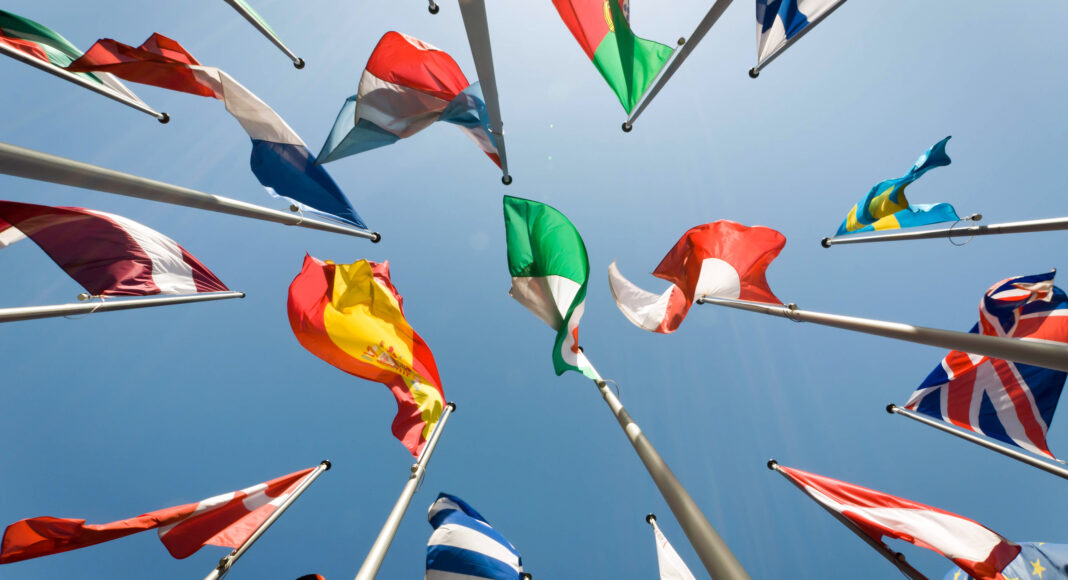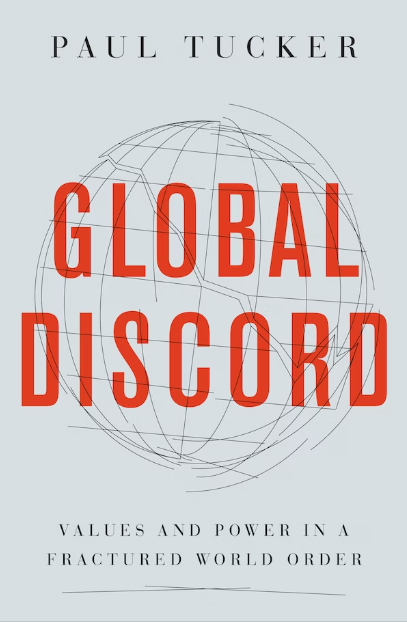In this Q&A about his new book for ProMarket, Paul Tucker explains the changing global order and the need for academics, policymakers and the public to understand and evolve in order to preserve it.
Q: In your view, why is it important to examine the power and values of international policymaking organizations?
Any system of international cooperation relies upon some kind of basic order that maintains peaceful coexistence. That basic order might be generated by a balance of power among Great Powers, as during the 18th and 19th centuries; or, as over recent decades, by hegemonic leadership from a leading superpower and its core allies. Which of those prevails is obviously a matter of material capabilities and ambitions: the realm of power. But to be sustained, those capable of meaningful resistance or defection have to accept the legitimacy of the Order relative to realistically available alternatives (including the costs of transitioning to a new Order). Here we tip-toe into the world of norms.
The norms that animate an Order and, hence, help hold it together also frame the conditions for any cooperation going beyond the conventions of peaceful existence itself. International regimes and organizations are designed and operate, therefore, according to the terms and norms of the prevailing Order, as well as on an era’s technological know-how. In the post-World War 2 world led by the United States, that has meant the United Nations, the International Monetary Fund and, more recently, the World Trade Organization and the Tribunal for the Laws of the Sea. All have certain kinds of liberalism running through them.
The legitimation norms that operate horizontally among states might, however, be in tension with the legitimation norms that operate in the vertical relations of each individual state (the norms that instantiate domestic acceptance of a particular state’s authority). Since a state’s capacity to maintain order, safety, trust and conditions for cooperation at home depend upon its being accepted as legitimate by its citizen-subjects, the domestic norms of states critical to international peace — the Powers — act as a de facto constraint on the extent of cooperation among states. Otherwise, too much international pooling or delegation of authority internationally would jeopardize domestic legitimacy and so local stability. We have seen examples of that in our own time, including in the US and Britain, both of which jibbed at rule by metropolitan internationalists.
But since states prudently put domestic legitimacy first, international regimes almost unavoidably enter tricky waters when new superpowers hold to different visions and values than those of the prevailing system’s Founders. That is where we are now. The commercial society fostered by economic globalization can usefully widen our sense of “we” but it cannot guarantee peace.
What to do? I think international cooperation will move to operating around a set of concentric legitimation circles. The more we share with others, and the less we fear them, the greater the potential for fruitful cooperation and coordination to solve problems and seize opportunities that require collective action of some sort. So, most obviously, the US and European will be able to do more together than either can safely do with the People’s Republic, and vice versa.
Q: What are your recommendations for ensuring that governing institutions align with a nation’s values?
That rather abstract account sets up something a little more concrete. Bluntly, we must seek peaceful coexistence with Powers such as the People’s Republic of China (PRC) that do not share our deep political values but without whom any sustainable global order will be fragile at best. That is not going to be easy. As policymakers were slow to grasp, we cannot afford to become overdependent on other states that either threaten (some of) their own people so badly that we might worry what they would do to us if they could, or that plausibly want to overturn the current Order if and when they can.
By “we” I mean what is loosely called the West but a different term ought to be found because “we” obviously includes, among others, those East Asian Confucian-heritage states, such as Korea and Japan, that govern themselves via constitutional democracy, and do so without abandoning their own histories. What we share is something like the rule of law, constitutionalism, and a commitment to certain basic (positive) rights for individuals and minority groups. None of us can afford to participate in international organizations-cum-regimes that violate any of our core political institutions’ most basic values to the point that the cohesion of local governance could be undermined.
That means we need the main international organizations to operate by those values too — not some idealized version but in the real way those values truly animate and underpin our core local political institutions in the real world. Global Discord has things to say on what that means for some of the main international economic organizations, including the International Monetary Fund (IMF), World Trade Organization (WTO), and Basel. For example, the IMF can’t sensible tell countries how to live. The WTO needs to find a way of reintroducing diplomacy into the regime’s development, so that judges don’t decide all the big issues. And Basel needs to open up to civil society, so that big banks and asset managers don’t seem to have an inside track.
Q: What do you think will be the most important geoeconomic developments in the next decade?
Political scientists have recently, and correctly, alighted on the fact that, given today’s technology, almost any economic-policy instrument can be weaponized against others (or internally, for that matter). That was never a secret to policy makers themselves. Sanctions, blockades, asset freezes, asset seizures have a long history, as do the norms of international law that aim to place limits on their use.
But those norms do not currently cater for aggressive cyber interference, and leave considerable room for using economic instruments to defend core interests. Those who doubted that were surprised by the recent treatment of Russian foreign exchange reserves when Moscow went to war against Ukraine.
While the new technology is unlikely to revolutionize the payments system, banking and money in the ways many crypto-enthusiasts dream of, it has transformed the financial system’s vulnerabilities internationally and for individual states. We have to be careful that digital currencies are designed to preserve privacy, security, and private allocation of credit.
Q: What is the impact you hope to achieve with your book?
Great question! I have goals at a number of levels. At a scholarly level, I want to persuade those working in the discipline of International Relations that there is a way out of the intellectual rut of having to back one or other of power, norms, or material (notably, economic) interdependence as the key to understanding relations between states and peoples. This means escaping from schools of thought that take their inspiration from, respectively, Hobbes, Kant, and Grotius (the most prominent international legal scholar immediately after Europe’s religious and political Reformation). The alternative route advocated in Global Discord takes its point of departure from the Scottish 18th century philosopher and political economist David Hume. This is a realistic realism, which is closer to a pluralistic liberalism than a universalist imperialism of values.
For the world of policy — a world I lived in for over three decades until 2014 — I want to persuade people that now the terms of global order are seriously contested, different policy fields cannot continue to live in silos. One of the blessings of a stable international order was that specialists could get on with their business without much lateral vision. Trade specialists did not need to understand monetary policy, and vice versa. Neither needed to think much about security policy. That is over. That presents many challenges.
Third, I want to persuade readers that this struggle is going to persist for a long time. The long-18th century contest between Britain and absolutist France is instructive because it played across almost every part of the planet, in almost every field, with periods of rapprochement and of conflict. Even if Beijing stumbles, China is a superpower, and one that will repeatedly challenge us.
That means allies and friends will be very important. For example, other rising powers, especially India, and Confucian-heritage constitutional democracies, notably South Korea and Japan. And, dare I say, Europe.







